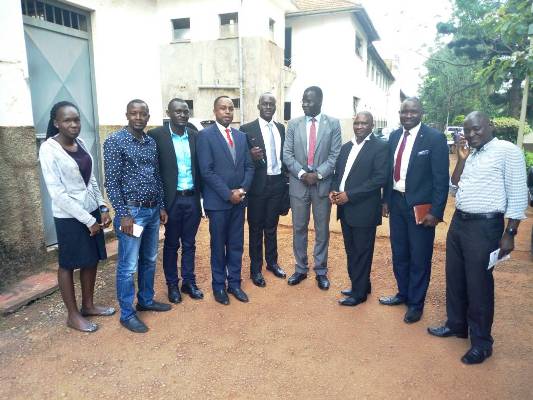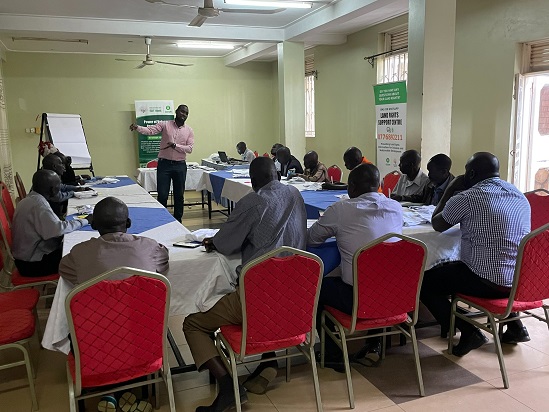URA Commissioner General, John Rujoki Musinguzi
The Tax Appeals Tribunal has ordered East African Breweries Limited (EABLi) to Uganda Revenue Authority (URA) tax worth Shs9.78bn- accrued in the period starting May, 2008 until June, 2015.
EABLi, a company registered in Kenya is a wholly owned subsidiary of East African Breweries Limited (EABL), which is a Kenyan registered group of companies.
In 2008, EABLi was established specifically to handle the export arm for all the subsidiaries of EABL, including Uganda Breweries Limited, a company which manufactures alcoholic and non-alcoholic drinks in Uganda.
In July 2015, URA initiated an audit into the tax affairs of Uganda Breweries Limited (UBL), for the period of May 2008 to June 2015. URA consequently established that in a bid to evade and/or avoid paying taxes in Uganda, EABLi was created as a special purpose vehicle for the purposes of marketing, promoting and selling the UBL products and sales outside Uganda.
This tax avoidance scheme was executed through UBL selling its products to EABLi, a related/associated party, at a cost plus markup of 7.5% and thereafter, EABLi sold the same products to external customers/third parties at a greater markup ranging between 70 – 90%, thus earning profits.
URA maintained that EABLi sourced income from Uganda through a branch located at the UBL premises where it carried on business through an agent, and that EABLi is liable to pay income tax assessed for the period ended June 2015 amounting to Shs9,780,243,983 which EABLi objected to, but URA maintained as per the objection decision dated 1st February 2017. The tax dispute was taken before the Tax Appeals Tribunal (TAT).
The Tax Appeals Tribunal ruled that ruled that on the issue of whether EABLi was a resident taxpayer, one needs to consider whether EABLi could have purchased goods from UBL and exported them without having presence in Uganda. The dispatch notes and invoices tendered in evidence show that they were issued in Uganda. They had the address of EABLi as also in Kampala. How was EABLi stamping the said documents if it did not operate in Uganda?
TAT also guided that it may not be necessary for a resident or non-resident person to have a branch in Uganda for income to be attributed to sources in Uganda other than sale of goods.
The Tribunal’s understanding of S.79(s) of the Income Tax Act is that any income attributable to any other activity, other than the sale of goods, in Uganda by a person whether conducted through a branch or not, is considered as derived from Uganda.
Whatever the role played by EABLi, whether as an intermediary or a seller, it derived income from an activity involving goods situated in Uganda and would fall under ‘any other activity” under S. 79(s) of the ITA. In absence of evidence rebutting the allegations of URA, the Tribunal notes that the Applicant did not discharge the burden placed on it by S. 18 of the TAT Act to prove that the income it is challenging was not attributable to activities that occurred in Uganda.
The arm’s length principle requires inter- company transactions to conform to a level that would have applied had the transactions taken place between unrelated parties, all other factors remaining the same. The activities of the group companies were overlapping and their transfer pricing arrangement shows that the companies are dealing with each other not at arm’s length. Under Section 90 of the ITA, in any transaction between associates, the commissioner may distribute, apportion or allocate income, deductions between associates as is necessary to reflect the income realized by the tax payer in an arm’s length transaction.
S. 91 of the ITA allows the Commissioner General to re-characterize a transaction where there is a tax avoidance scheme. In the absence of satisfactory explanations, the Tribunal would not fault the Commissioner’s powers to re-characterize transactions where there is a tax avoidance scheme or where the form does not reflect the substance, like in this particular case. The Commissioner cannot be said to have acted grossly irrationally for the Tribunal to set aside the decision of URA.
TAT also ruled that The Commissioner has powers to apportion income of an intergroup company and issue an assessment. In this case, the commissioner chose the Applicant over UBL. The Tribunal feels that the Commissioner was acting within his discretion and was justified to do so.
The application was dismissed by TAT with costs in favor of URA with EABLi liable to pay income tax worth Shs9,780,243,983/- with immediate effect.
The new URA Commissioner General, John Rujoki Musinguzi has promised to increase tax education among taxpayers so as to improve tax compliance and increase revenue collections.






